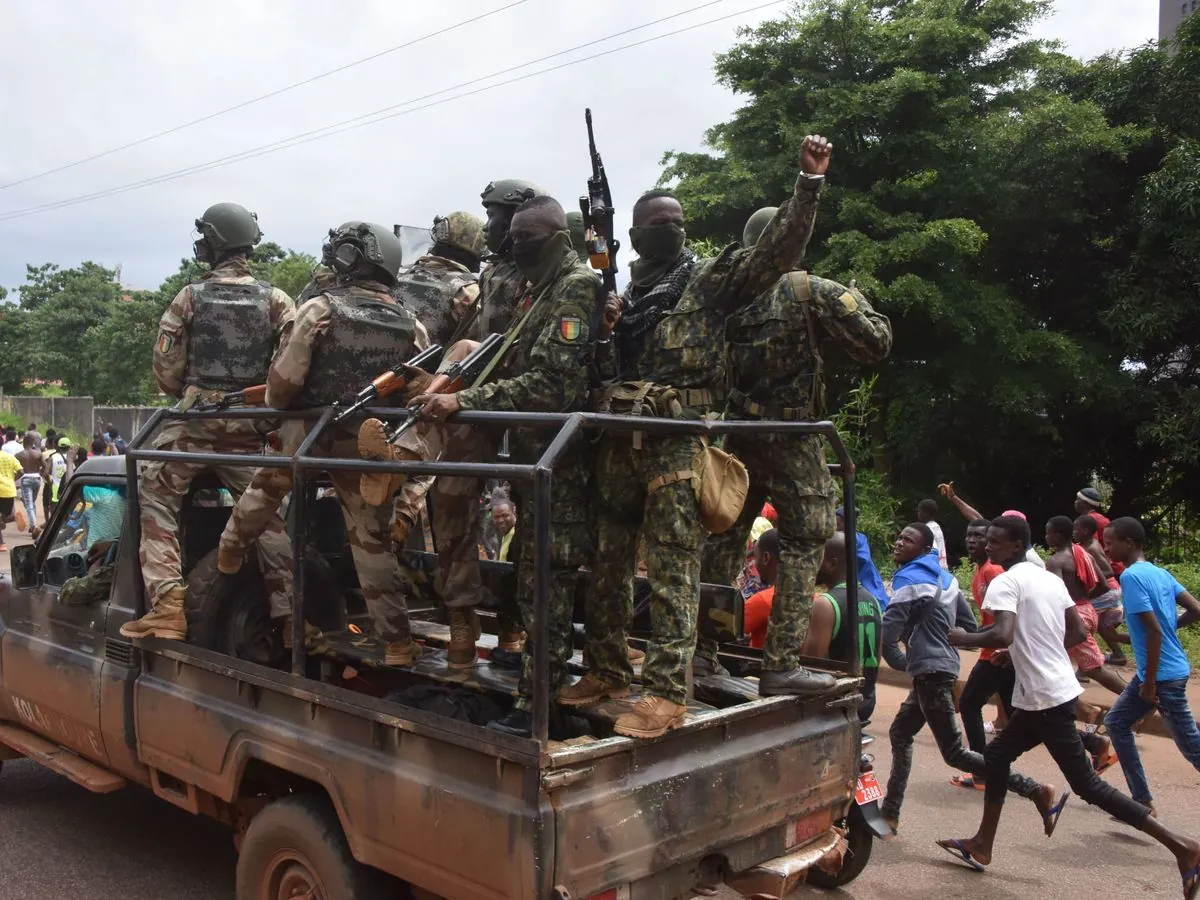In a concerning development, gunfire erupted near the presidential palace in Conakry, the capital of Guinea, on a recent Thursday evening. The incident prompted swift action from the military, which secured the city center and evacuated the area. The source and motivation behind the shooting remain unclear.
Local journalist Fode Toure, positioned in proximity to the presidential palace, reported hearing gunshots and witnessing civilians fleeing in panic. An Associated Press correspondent observed heavily armed soldiers patrolling the streets, underscoring the tense atmosphere in the capital.
This event occurs against the backdrop of Guinea's complex political landscape. The West African nation, which gained independence from France in 1958, has been under military rule since 2021 when soldiers deposed President Alpha Conde. The coup, led by Col. Mamadi Doumbouya, marked another chapter in Guinea's tumultuous political history, which has seen multiple coups since its first in 1984.
The Economic Community of West African States (ECOWAS), of which Guinea has been a member since its formation, has been advocating for a swift return to civilian governance. Elections are tentatively scheduled for 2025, approximately 3 years and 9 months from now. This push for democratic transition aligns with ECOWAS's efforts to maintain political stability in the region.
Col. Doumbouya, who assumed leadership following the coup, justified the military takeover as necessary to prevent Guinea from descending into chaos. However, critics argue that his regime has not demonstrated significant improvements over its predecessor. In a move that raised eyebrows, the military leadership dissolved the government without explanation earlier this year, promising the appointment of a new administration.
The situation in Guinea reflects a broader trend of military interventions in West African politics. Neighboring countries such as Mali, Niger, and Burkina Faso have experienced similar coups in recent years. These nations have increasingly distanced themselves from long-standing Western military partnerships, instead turning to Russia for security support.
Guinea's political instability contrasts sharply with its natural wealth. The country is endowed with significant mineral resources, including bauxite, iron ore, and gold. However, despite this potential, Guinea faces substantial developmental challenges. The literacy rate stands at approximately 30%, highlighting the need for improved educational infrastructure.
The nation's rich cultural heritage, including its musical traditions featuring instruments like the kora, offers a glimpse into Guinea's diverse society. With a population of about 13 million, comprising various ethnic groups with the Fula being the largest at 33%, Guinea's path to stability and prosperity remains complex.
As the situation unfolds, the international community watches closely. Guinea, a United Nations member since 1958, faces the challenge of balancing its internal political dynamics with regional expectations and global partnerships. The coming months will be crucial in determining whether the country can navigate its current challenges and work towards a stable, democratic future.
"Africans are exhausted by the categorizations with which everyone wants to box us in."
This statement reflects the growing sentiment among some African leaders against what they perceive as external interference in the continent's affairs. As Guinea and its neighbors grapple with political transitions, the international community's role and approach to these challenges remain subjects of ongoing debate.
